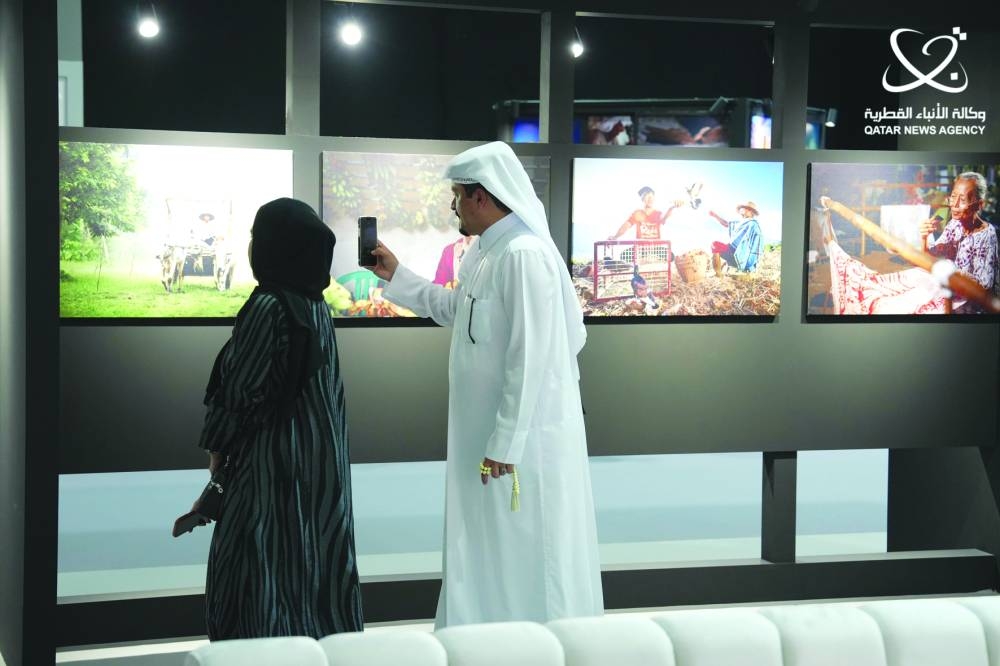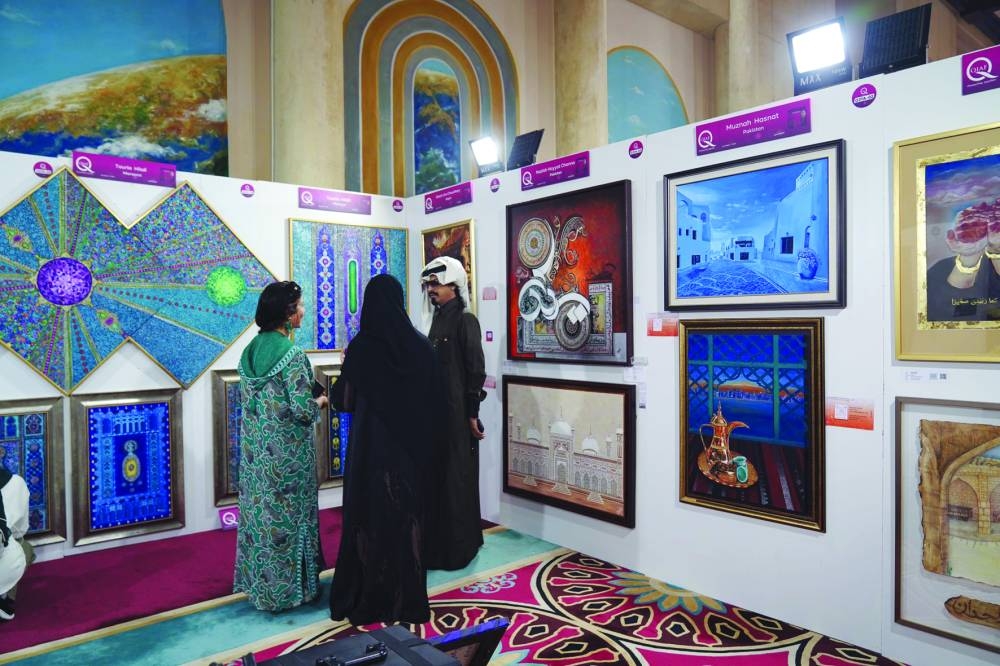Public and private sector institutions and centres in Qatar, concerned with the artistic and cultural aspects, rely on organising training workshops, classes, lectures, and seminars as a fundamental part of their programmes and projects. These efforts aim to develop the talents and capabilities of their affiliates, prepare future artists, and enhance their knowledge of the techniques and aesthetics of visual and plastic arts.
The Ministry of Culture, during the “Fereej Art and Design” festival held last month as part of the cultural season activities, showcased an outstanding model of utilising art workshops and training through the pavilions of its affiliated centres.
Additionally, the “Doha Photography Festival” held last month featured a series of workshops and lectures led by an elite group of photographers and creatives from Qatar, the Gulf, and around the world. These sessions covered topics such as nature photography, the use of artificial intelligence, underwater photography, wildlife photography, and capturing emotions in sports events.
Qatar Museums has organised numerous art workshops and interactive cultural activities over the years at the Museum of Islamic Art, the National Museum of Qatar, the Arab Museum of Modern Art, 3-2-1 Qatar Olympic and Sports Museum, Qatar Museums Gallery — Al Riwaq, and the Fire Station — Artists in Residence. These activities, supervised by professional artists, aim to enhance the knowledge of talented individuals and amateurs in various arts and techniques.
In the context of the 2024 Qatar International Art Festival, organised by Katara last month with the participation of 350 artists from 70 countries, a significant portion of the programme was dedicated to art workshops and cultural seminars to foster co-operation and exchange of experiences among creatives from Qatar and around the world.
Many artists and supervisors of art workshops and training, in special statements to the Qatar News Agency (QNA), emphasised the importance of these workshops in refining the skills of talented individuals and elevating them to a professional level, as well as discovering the potential of promising future artists.
Award-winning Qatari photographer Arif al-Omari highlighted the role of art workshops in enhancing the skills of photographers and enabling them to transition from hobbyists to professionals.
He said that the workshops and courses supervised by professional photographers represent a form of giving back to the community and the institutions that nurtured their talents and contributed to refining their experiences.
Al-Omari, who has trained over 2,000 people in Qatar, the Gulf, and the UK, noted that workshops have become an integral part of these art institutions. He pointed out that the Qatar Photographic Society, formerly, was keen on organising workshops to help photographers renew their skills and stay updated with the latest in photography and camera technology. He emphasised that the Qatar Photography Center, under the Ministry of Culture, is committed to offering diverse courses and workshops to its members, focusing on a range of topics from photography basics and camera handling to various stages of specialization in photography arts. The centre also provides certificates and prepares participants to transition from hobbies to the professional market.
Al-Omari also noted that social media has created new opportunities for photographers, with food photography becoming a prominent field. This requires photographers to have a precise understanding of lighting aesthetics, composition, and food culture to market and visually express food effectively.
Iraqi visual artist Ismail Azzam emphasised the importance of training workshops for talented young artists in Qatar, noting that their results are evident in their distinguished artistic productions and participation in individual and group exhibitions both domestically and internationally.
Azzam pointed out that visual art is fundamentally an individual creative endeavour that depends on the artist’s effort to develop their tools and artistic skills. Public and private sector institutions, represented by the Ministry of Culture, museums, or private galleries, play a crucial role in providing support, spaces, materials, tools, and specialised trainers to encourage talented community members to engage in these courses and workshops. While talent is necessary, it needs to be honed with knowledge, education, serious practice, and continuous training.
He praised Qatar Museums’ experience in organising training workshops over several years at the Museum of Islamic Art, the National Museum of Qatar, in various arts under the supervision of specialists in drawing, sculpture, photography, decoration, Islamic arts, and Arabic calligraphy, benefiting talented Qataris, Arabs, and foreigners.
Azzam noted that the workshops he has offered with Qatar Museums over seven years, including an ongoing workshop at Mathaf: Arab Museum of Modern Art, focus on portrait drawing. These workshops provide trainees with basic information and skills, allowing them to choose their style, school, and approach to their ideas and visions.
He emphasised the need for workshop participants and beneficiaries to have a minimum knowledge of the history of the art they practice and to believe in the role of art in societal development, culture, positive psychological impacts, and instilling high ethical values.
Azzam, who has more than 25 years of experience teaching drawing through numerous workshops using various techniques, including traditional tools like pencils, charcoal, acrylics, and oils, as well as modern digital drawing techniques, highlighted the effectiveness of art and training workshops and lectures organised by cultural institutions in Qatar and most Arab countries. These workshops help refine the abilities of talented individuals in different artistic fields such as visual arts, ceramics, sculpture, design, printing, Arabic calligraphy, decoration, music, and theatre. These workshops continue to play an essential role alongside specialised academic art institutes in discovering and nurturing talents through continuous training.

The Doha Photography Festival featured a series of workshops and lectures led by an elite group of photographers.

The Qatar International Art Festival saw the participation of 350 artists from 70 countries.
